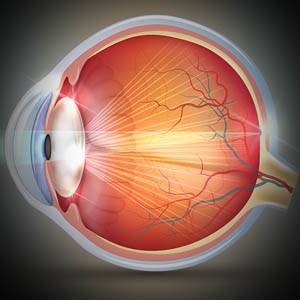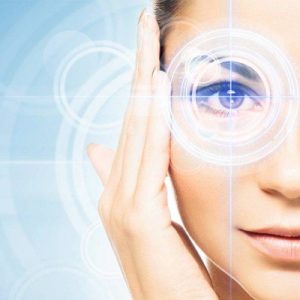Does makeup irritate your eyes?
Eye makeup is commonly worn to accentuate the eyes. For some people though, eye makeup causes burning, itching and tearing— all common symptoms of dry eye syndrome.
If you think your eye makeup is causing dry eye symptoms, there are things you can do to alleviate your discomfort.
Below are some tips to help you protect your eyes from irritation, so you can wear your eye makeup with confidence.
Read packaging labels carefully
Only use products that have been approved by the FDA.
FDA regulates cosmetics under the Federal Food, Drug and Cosmetic Act (FD&C Act). Under this law, cosmetics must not be adulterated or misbranded. They must be safe for consumers and properly labeled.
Many stores sell products that are not labeled— so beware, not all makeup pencils are eyeliners, and not all tubes with applicators are mascara.
If a makeup product is not labeled, keep it far away from your sensitive eyes.
1. Keep your eye makeup products clean
Always wash your hands and face before applying makeup.
This will help to keep your makeup and applicators clean and germ free. It’s also a good idea to sanitize your brushes after each use or sharpen your eyeliner prior to using it.
2. Only apply makeup to the outside of your eyes
If glands in your eyelids become blocked, this can result in severe dry eyes.
Eye makeup applied to the inner lids can cause a buildup of debris and clog the tiny meibomian glands that line the inside of your upper and lower eyelids.
These glands secrete nourishing oils that keep your tear film healthy and eyes comfortable and keeping them clear and open is essential for your tear quality.
Contact an eye doctor near you if you wear makeup and experience any eye pain or irritation.
SEE RELATED: 9 Ways Your Eyes are a Window to Your Health
3. Never share eye makeup
Sharing eye makeup, brushes and eyelash curlers is never a good idea.
Using the same makeup and applicators as your best friend, sister, and especially the makeup “tester” in the beauty store, is an invitation for harmful microbes like bacteria and fungus to enter your eyes and result in serious bacterial and viral eye infections.
4. Replace your makeup often
Not only does eye makeup expire, it also can become contaminated easily— especially if you recently had a virus or eye infection.
Check the labels on your makeup for their expiration date, and while you’re at it, replace or sanitize your applicators at the same time.
5. Remove eye makeup daily
Sleeping with eye makeup significantly increases your risk of developing blepharitis, an inflammation of the eyelids.
Try to make it a habit to remove your makeup before going to bed using an oil-free makeup remover or wipe.
Not only will you feel clean and refreshed before you head to sleep, but re-applying makeup in the morning will be much easier.
Practice these tips and you may be pleasantly surprised at how good your eyes feel, even with makeup on.
LEARN MORE: Guide to Eye Health
If your eyes continue to feel dry and irritated, contact an eye doctor near you for a comprehensive eye exam.
Your eye doctor can diagnose what is causing your discomfort, and provide an effective treatment plan to get to the root of the problem.
For some people, eye makeup causes burning, itching and tearing – indicating dry eyes or possibly a bacterial or viral eye infection.
Use these tips to help you protect your eyes, so you can wear eye makeup with confidence.









